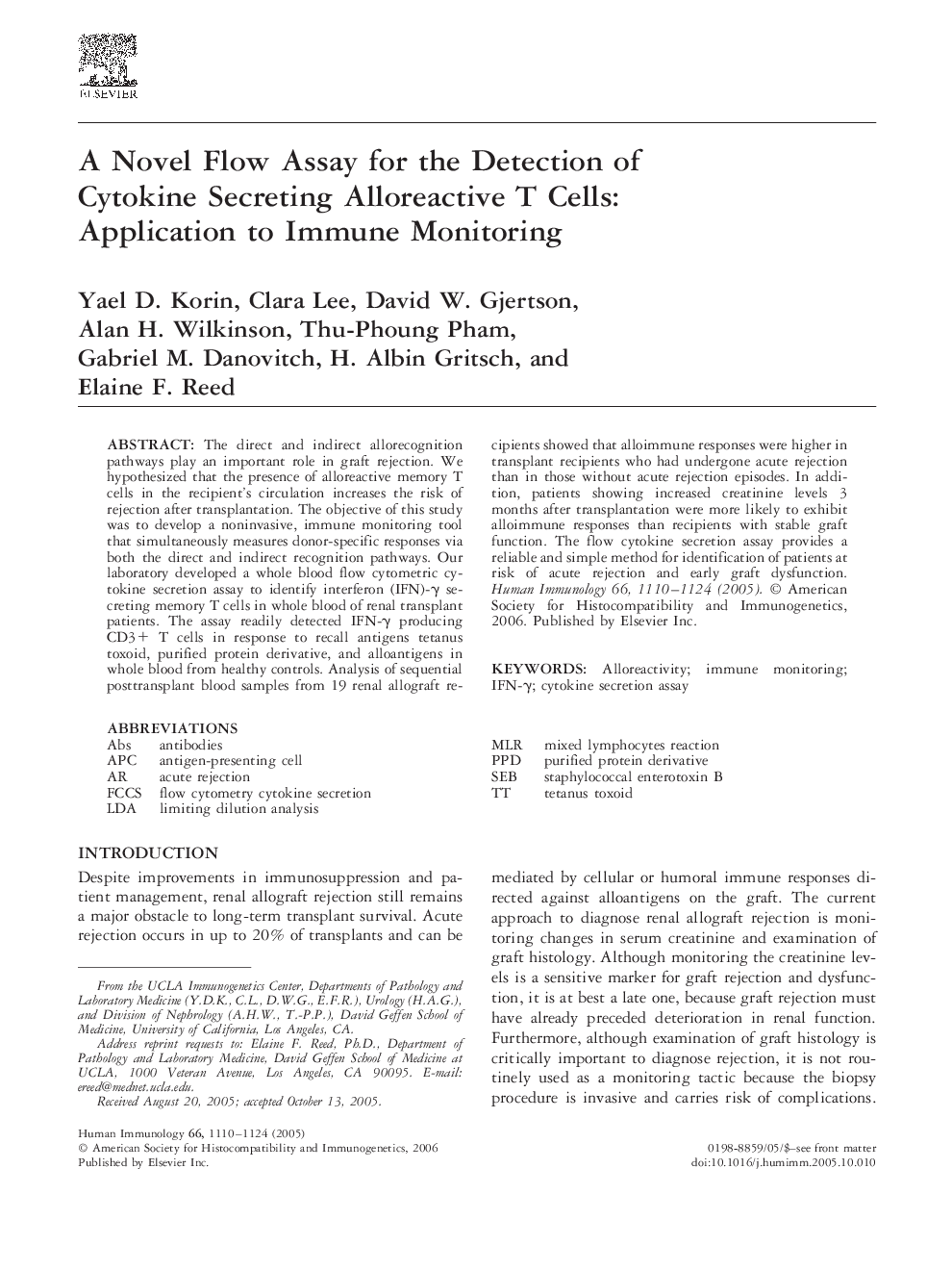| Article ID | Journal | Published Year | Pages | File Type |
|---|---|---|---|---|
| 9264159 | Human Immunology | 2005 | 15 Pages |
Abstract
The direct and indirect allorecognition pathways play an important role in graft rejection. We hypothesized that the presence of alloreactive memory T cells in the recipient's circulation increases the risk of rejection after transplantation. The objective of this study was to develop a noninvasive, immune monitoring tool that simultaneously measures donor-specific responses via both the direct and indirect recognition pathways. Our laboratory developed a whole blood flow cytometric cytokine secretion assay to identify interferon (IFN)-γ secreting memory T cells in whole blood of renal transplant patients. The assay readily detected IFN-γ producing CD3+ T cells in response to recall antigens tetanus toxoid, purified protein derivative, and alloantigens in whole blood from healthy controls. Analysis of sequential posttransplant blood samples from 19 renal allograft recipients showed that alloimmune responses were higher in transplant recipients who had undergone acute rejection than in those without acute rejection episodes. In addition, patients showing increased creatinine levels 3 months after transplantation were more likely to exhibit alloimmune responses than recipients with stable graft function. The flow cytokine secretion assay provides a reliable and simple method for identification of patients at risk of acute rejection and early graft dysfunction.
Keywords
Related Topics
Life Sciences
Immunology and Microbiology
Immunology
Authors
Yael D. Korin, Clara Lee, David W. Gjertson, Alan H. Wilkinson, Thu-Phoung Pham, Gabriel M. Danovitch, H. Albin Gritsch, Elaine F. Reed,
